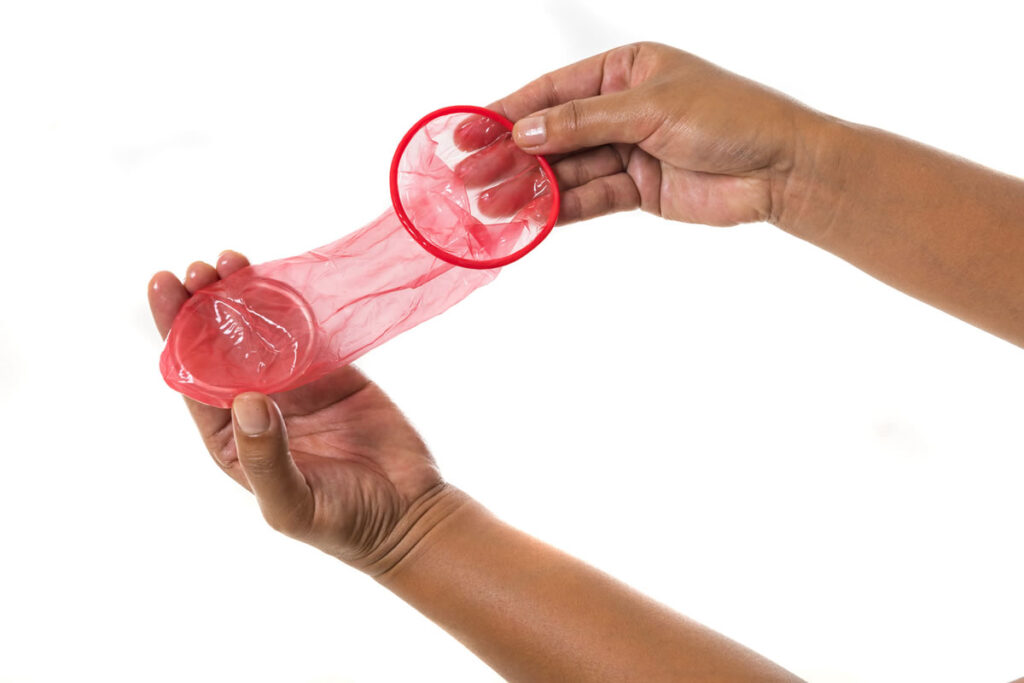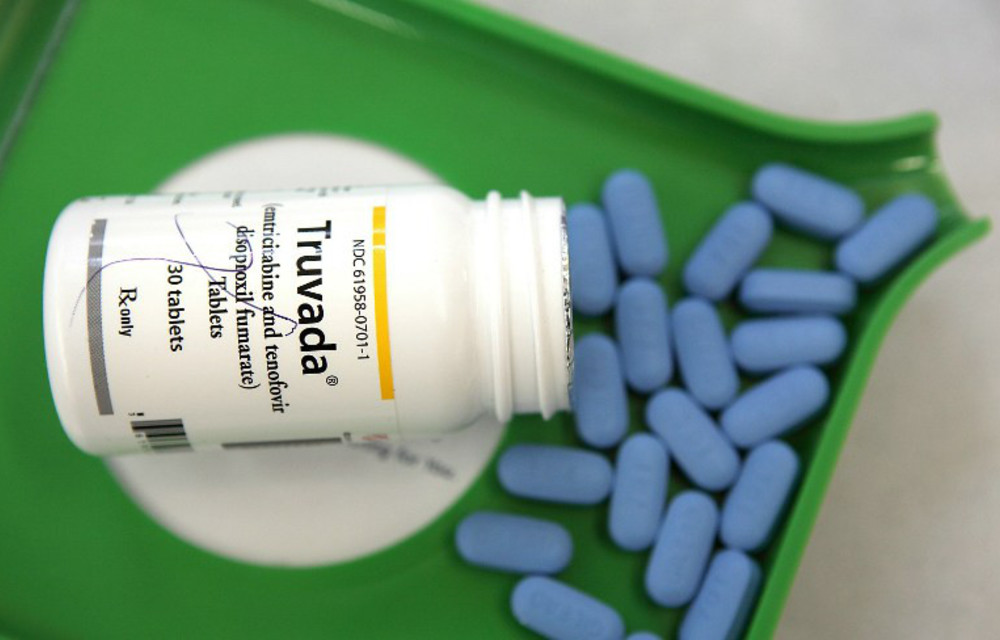- A cheap antibiotic (called doxycycline) used to treat skin infections and to stop people from getting malaria could also work to prevent chlamydia, gonorrhoea and syphilis, found a United States study in men who have sex with men and transgender women.
- People in the study who took one 200mg tablet up to three days after unprotected sex had 65% fewer of these three sexually transmitted infections than those who didn’t.
- Researchers don’t yet know how much this method could fuel superbugs, a phenomenon South Africa’s state hospitals are already battling to control.
An old medicine is back with a new promise: it can significantly cut your chances of getting a bacterial infection from condomless sex.
It’s an antibiotic from the 1960s called doxycycline used to treat airway, skin or urinary tract infections. It’s also given to travellers to prevent them from getting malaria.
DoxyPEP is short for doxycycline post-exposure prophylaxis (PEP), which means the antibiotic is used to prevent a bacterial infection after having been exposed to germs that cause certain sexually transmitted infections (STIs), instead of treating it once it’s already developed. In the case of malaria, doxycycline is used as pre-exposure prophylaxis, or PrEP, which means it’s given before someone has been exposed to the parasite that causes malaria.
New research conducted in men who have sex with men and transgender women in the United States (US) shows taking a tablet of 200mg doxycycline up to 72 hours after unprotected oral or anal sex reduces someone’s chances of getting syphilis, chlamydia or gonorrhoea by two-thirds.
But although the drug itself is cheap (from 55c for a 100mg pill), it could come at a high cost to society because researchers don’t yet know how the regular use of the medicine to prevent STIs might fuel antibiotic resistance (which is what happens when bugs learn to outsmart medicine).
Infectious disease experts in South Africa say that, once local research has been done, DoxyPEP could work well here to prevent syphilis, chlamydia or gonorrhoea among transgender women and men who have sex with men. These two groups are more vulnerable to developing STIs than the general population for a range of reasons, including that anal sex makes them more vulnerable to contracting the germs that cause the conditions.
It’s a particularly hopeful plan for those who use state facilities.
Why?
Because in South Africa’s public sector, people are treated for STIs only when they show up to a facility with symptoms. Health workers then prescribe medicine based on what they see and what patients tell them about their sexual history.
This method is used in many poorer countries because it doesn’t require laboratory tests, which are expensive and are often not available. Prescribing medicine based on a patient’s symptoms is therefore cheap and allows them to get treatment on the day they’re at the clinic.
But there are drawbacks to this approach.
Many STIs don’t show symptoms, so those people won’t ever be treated, and they won’t know that they’re spreading the infection to others.
When there’s no laboratory result to confirm a diagnosis, health workers often opt for a medicine that could work for various infections, according to Johan Hugo, the senior clinical advisor at the Anova Health Institute.
Or, they may prescribe antibiotics when it’s not necessary. Both cases can drive antibiotic resistance.
While DoxyPEP could help prevent STIs from developing in the first place, the method could also drive drug resistance, says Remco Peters, an STI doctor and epidemiologist who’s in charge of putting together the STI treatment guidelines of the Southern African HIV Clinicians Society (SAHCS).
What does the research say?
Doxycycline worked so well to prevent STIs in men who have sex with men and transgender women in the US DoxyPEP study that an ethical board ruled that it would be wrong to deprive the control group of the medicine. In a trial, the control group are people who don’t get the drug being studied. In this way, researchers can compare the results of the group that gets the actual drug with those who don’t to see how well the drug works.
Because of the good results, the DoxyPEP trial was stopped a year early, Annie Leutkemeyer, one of the principal researchers on the team, told delegates at the 24th International Aids Conference held in Montreal, Canada in July.
The 501 participants were split into two groups. One group, of 327 people, took DoxyPEP after unprotected sex and the other group (174 people) did not. There would initially have been 554 participants in total, had the trial not ended early.
People who took the antibiotic had 65% fewer STI diagnoses than the control group, even though the DoxyPEP group was twice as big.
The drug was only slightly less effective at preventing STIs in HIV-positive people (62%) than in those not infected with HIV (66%).
A Kenyan study is also trialling the antibiotic to prevent STIs in cisgender women (women whose gender identity matches the sex they were born with).
It will end in June 2024.
What about resistance?
In the US study, people were pretty good at taking DoxyPEP: almost 9 out of 10 said they did so in time (between 24 and 72 hours after unprotected sex). About half of the participants used DoxyPEP up to 10 times per month and 30% took a pill between 10 and 20 times in that period. The remaining participants used the medicine on more than 20 occasions.
But researchers don’t know exactly how using the antibiotic so regularly will change the germs it’s meant to fight, or how it could affect the collection of bacteria normally living in our bodies and which help to keep the bad ones in check.
Staphylococcus aureus is one of the bugs that scientists worry about. It lives on our skin and is usually harmless. But in some cases (for example, when someone has a weak immune system) it can cause serious problems, such as heart inflammation or sepsis (when an infection you already have triggers life-threatening tissue damage throughout your body).
Infections caused by Staphylococcus aureus are already hard to treat because the germ is resistant to multiple antibiotics (also referred to as being multidrug resistant).
Nearly half of more than 2 000 patients admitted to hospitals with sepsis in Gauteng, the Western Cape, the Free State and KwaZulu-Natal between 2010 and 2012 had been infected with a drug-resistant strain of the bug. When researchers tested blood samples from these patients to see how well the germ responded to 18 different antibiotics, they found that doxycycline only worked on drug-resistant Staphylococcus aureus half the time.
What do we know about STI resistance in SA?
South Africa will need local studies to help policymakers gauge how well DoxyPEP will work in the country, Peters says.
The country’s public sector facilities are already battling to stop common bacterial infections seen in hospitals from becoming untreatable because there aren’t enough infectious disease experts or money to run programmes to curb antimicrobial resistance. A study conducted in KwaZulu-Natal, published in the journal Antibiotics in June, for instance, found that only three out of 57 state hospitals had set aside funds to roll out South Africa’s action plan to fight antimicrobial resistance.
From a Johannesburg study that monitored changes in resistance over 10 years, it already seems as if an antibiotic such as doxycycline may not work as well to prevent gonorrhoea in South Africa as it did in the US study, Peters says. Up to 83% of gonorrhoea cases were resistant to the antibiotic in the Johannesburg trial.
Fortunately, Peters says, doxycycline resistance in chlamydia and syphilis is rare, so DoxyPEP will likely be very effective in preventing those infections in South Africa.
Untreated STIs are a serious threat, research shows.
When STIs such as gonorrhoea, syphilis or chlamydia aren’t treated, they can cause infertility, put you at a higher risk of contracting HIV or lead to stillbirth if a woman is pregnant. People with HIV who aren’t on antiretroviral (ARV) treatment also become more infectious when they have gonorrhoea.
In short, it’s a double bind: the way South Africa treats STIs at the moment drives drug resistance and a possible new prevention method could do the same.
So how should policymakers decide?
Says Peters: “It’s hard to compare the two [approaches] without clear answers about how well DoxyPEP will work in different populations, and how that could impact drug resistance.”
Lessons from HIV PEP
The country’s public health system already provides PEP for HIV. This four-week ARV course cuts people’s risk of HIV infection by about 80%, as long as they start taking the pills a day after a possible exposure. The medicine has been available for free at state facilities since 2003.
Hugo, who has worked at Anova’s Ivan Toms Centre for Health in Cape Town since 2009, says he’s seen first-hand that health workers’ attitudes can determine if a strategy like this works in real life.
He explains: “Health workers often judge when people say they need PEP. But people are sexual beings and stuff happens. When a condom breaks or maybe you just didn’t use one, people need to be comfortable talking to health workers about it.”
Where should people get DoxyPEP?
South Africa still battles to get HIV treatment and prevention to the people who need it most, says Juliet Houghton, who heads up SAHCS.
To fix this, they, together with other organisations, are working on a project that will train pharmacists to start people on ARVs, HIV PEP or the HIV prevention pill (PrEP), Truvada.
It’s an extension of a 2010 drive to upskill nurses to administer ARVs so that patients didn’t have to queue at hospitals to see a doctor for treatment. Instead, they could just go to the nurse at their nearest clinic. This took pressure off bigger facilities and ultimately more people started treatment.
Now, pharmacists too will be able to bring ARVs, HIV PEP and Truvada to people.
And, says Houghton, pharmacies could be an ideal place to offer DoxyPEP, since many people prefer going to chemists rather than clinics.
“Pharmacies are often near shopping centres, and usually close to a taxi rank, even in the rural areas.” Unlike state clinics, they’re also open on weekends and after work.
But part of preparing health workers to roll out DoxyPEP should include explaining to patients what they can expect from the medicine, Hugo cautions.
Doxycycline can cause heartburn, so Hugo usually tells his patients to eat something before taking the drug, to take it with enough water to swallow easily and to avoid dairy. Dairy products such as milk decrease the amount of doxycycline the body can absorb, so people might be getting a lower dose than they should. Sitting down while swallowing the pill can make the heartburn worse, so it’s better to stand upright while taking it.
This kind of information may seem arbitrary, says Hugo, but it must be included when health workers are trained to administer DoxyPEP.
Houghton agrees. When South African nurses were trained to give people the three-monthly contraceptive injection Depo-Provera, she argues, they weren’t told to tell their clients of the shot’s possible side effects (such as dizziness) or how to manage them.
Very soon women didn’t want to go for the contraceptive jab anymore because of the side effects.
“If we want to use these new strategies like DoxyPEP, we’ve got to cover all our bases.”
Joan van Dyk was a health journalist, senior health journalist and news editor at Bhekisisa between 2017 and 2023.








